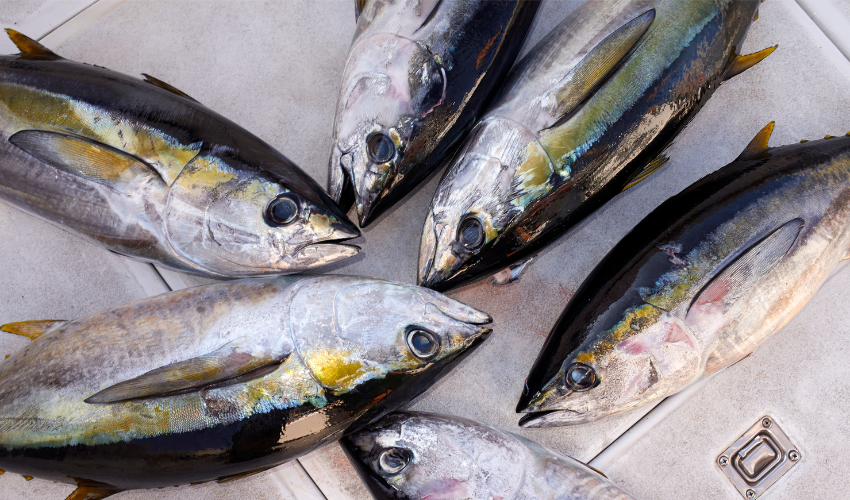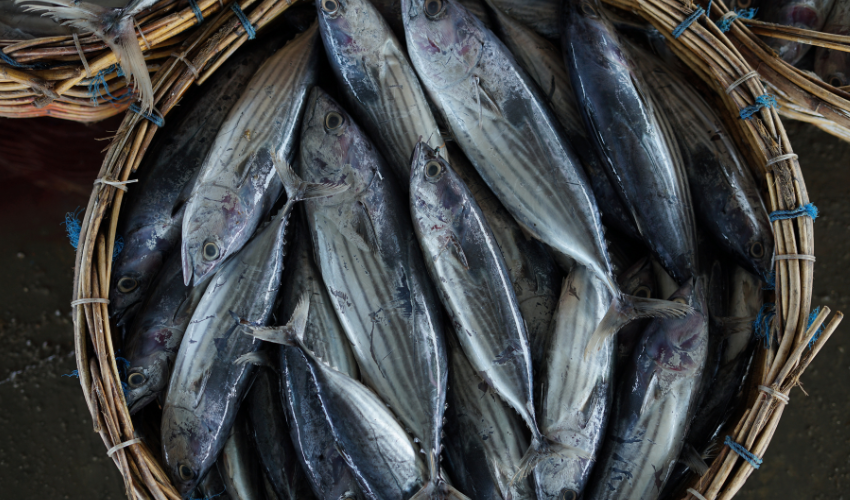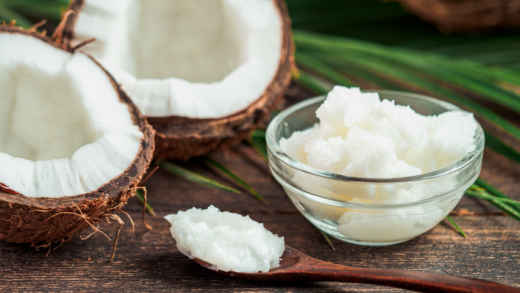Tuna is a popular and widely available seafood that is loved by many for its delicious taste and numerous health benefits. However, with several different types of tuna available in the market, it can be challenging to determine which tuna is the healthiest and most nutritious for your diet.
In this article, we will explore the various types of tuna and help you identify which tuna is the healthiest and offers the maximum benefits.
Which Tuna is Healthiest?
- Albacore Tuna:
Albacore tuna, also known as “white tuna,” is a mild-tasting and low-fat fish that is rich in protein, omega-3 fatty acids, and essential vitamins and minerals. It is also one of the healthiest types of tuna available.
- Albacore tuna contains higher levels of omega-3 fatty acids compared to other types of tuna. These fatty acids help reduce inflammation and improve heart health.
- It is also low in mercury, making it a safer option for pregnant women, young children, and people who are sensitive to mercury.

- Yellowfin Tuna:
Yellowfin tuna, also known as “ahi tuna,” is a flavorful and meaty fish that is commonly used in sushi and other seafood dishes. It is also a healthy and nutritious option.
- Yellowfin tuna is an excellent source of lean protein, with each serving containing around 25 grams of protein. It is also low in fat and calories, making it an ideal choice for weight loss.
- However, yellowfin tuna may contain higher levels of mercury than albacore tuna. It is essential to limit your consumption to one or two servings per week.

- Skipjack Tuna:
Skipjack tuna, also known as “light tuna,” is the most commonly available type of tuna in the market. It is affordable and convenient to use, making it a popular choice for people who enjoy canned tuna.
- Skipjack tuna is rich in protein and low in fat and calories, making it an excellent choice for a healthy diet.
- However, it contains lower levels of omega-3 fatty acids compared to other types of tuna, and it may also contain higher levels of mercury.

FAQs:
- How much tuna can I eat per week?
The amount of tuna you can eat per week depends on the type of tuna you choose. Albacore tuna and yellowfin tuna are higher in mercury and should be limited to one or two servings per week. Skipjack tuna can be consumed more frequently, but it is still recommended to limit consumption to three or four servings per week. - Can tuna be harmful to my health?
Consuming large amounts of tuna, particularly high-mercury varieties, can lead to mercury poisoning, which can cause adverse health effects. It is essential to choose the right type of tuna and limit your consumption to maintain good health. - Is canned tuna healthy?
Canned tuna can be a healthy and convenient food option. However, you should choose canned tuna that’s packed in water rather than oil, as the latter can add unnecessary calories and fat to your diet. - Is raw tuna safe to eat?
Raw tuna, such as in sushi or sashimi, can be safe to eat if it’s been handled and prepared properly. However, there is always a risk of foodborne illness, especially if the tuna is not fresh or has not been stored at the correct temperature. - What is the difference between light tuna and white tuna?
Light tuna, which includes skipjack and some smaller species of tuna, is generally lower in mercury than white tuna, which includes albacore tuna. Light tuna also tends to have a milder flavor and a softer texture than white tuna. - What is the most sustainable type of tuna to eat?
Some types of tuna, such as skipjack and albacore tuna caught using pole and line methods, are considered more sustainable than other types of tuna. Look for tuna that has been certified by a third-party organization, such as the Marine Stewardship Council (MSC), to ensure that it has been sustainably caught.
Conclusion
In conclusion, the question “Which tuna is healthiest?” does not have a straightforward answer. It depends on several factors, including your health goals, dietary needs, and personal preferences. However, in general, yellowfin tuna tends to have the highest levels of omega-3s, skipjack tuna is lower in mercury than albacore tuna, and tuna that’s been sustainably caught is better for the environment. When choosing tuna, it’s important to consider all of these factors and make the best choice for your health and the planet.






















